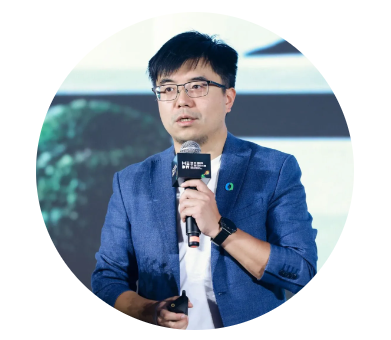Design Master Talks | Lu Gang, Founder of Technode: "Redefining Technology through Design"
 For years, China has been driven by technology. In the future, it may also be driven by design. During the 2024 Hebei International Industrial Design Week, Lu Gang, Founder and CEO of Technode and Co-founder of BEYOND Expo, delivered a keynote speech titled Redefining Technology through Design, sharing his insights on how design can redefine technology in the AI era.
For years, China has been driven by technology. In the future, it may also be driven by design. During the 2024 Hebei International Industrial Design Week, Lu Gang, Founder and CEO of Technode and Co-founder of BEYOND Expo, delivered a keynote speech titled Redefining Technology through Design, sharing his insights on how design can redefine technology in the AI era.

Lu pointed out that although technology is omnipresent, China lacks sufficient high-quality design talents. He explored the interplay of technology and design across four key aspects of life: food, fashion, housing, and mobility.
Food
Technology has revolutionized how people eat. Online platforms have altered daily eating habits, enabling meals to be enjoyed anytime and anywhere. Innovations like lab-grown vegetables allow fresh produce to be cultivated at home, eliminating the need to visit markets. Meanwhile, advancements in artificial proteins, plant-based meat, and cultured seafood are reshaping diets, addressing concerns about health and sustainability.
Lu highlighted how the kitchen of the future may feature robots that take over cooking and meal preparation. This vision showcases how technology continues to redefine everyday life.
 Fashion Technology
Fashion Technology
Today, people seek not only style but also smart functionality in what they wear. Beyond smartwatches, future innovations may include smart earrings and glasses, integrating technology seamlessly into daily lives.
Lu emphasized the alignment between fashion technology and ESG principles, with an increasing focus on recyclable and sustainable materials. The textile industry, a major consumer of water and producer of wastewater, is undergoing a transformation to adopt greener practices. Logistics innovations, such as warehouse robots, also play a role in the sustainability of the fashion industry.
Housing and Real Estate
Smart homes have become mainstream, and green architecture is a growing trend in places like Xiong’an New Area. Hebei's annual Design Week has been a consistent platform for promoting sustainable urban development, empowering cities to explore innovative design solutions for a sustainable future.
Mobility
New energy vehicles and autonomous driving are gradually reshaping transportation. In China, car designs prioritize passenger comfort over driver-centric features, reflecting the idea of vehicles as "mobile living spaces" or "second homes."
Lu also discussed the future of high-speed transportation. China’s current high-speed rail travels at 350 km/h, while vacuum trains in development could reach speeds of 1,200 km/h. The low-altitude economy, featuring drones for short-distance tasks, will further integrate technology into daily life.
 Asia’s Tech Landscape
Asia’s Tech Landscape
Over the past few years, the Asian tech ecosystem has undergone significant changes. Lu highlighted Japan's evolution from a domestically focused market to a global player. Today, both large enterprises and startups in Japan actively invest in Southeast Asia, contributing to the rise of unicorn companies. Similarly, many Chinese brands are transitioning into globally recognized names.
A Platform for Chinese Innovation
Lu concluded his speech by emphasizing the importance of design and technology in shaping the future:
"In the future, we hope to create a platform that showcases Chinese and Asian innovation. Together with Hebei and Xiong’an New Area, we aim to bring the best of Chinese design and technological advancements to the global stage."
Through his talk, Lu underscored the transformative potential of combining design and technology to drive innovation and create a sustainable future.





